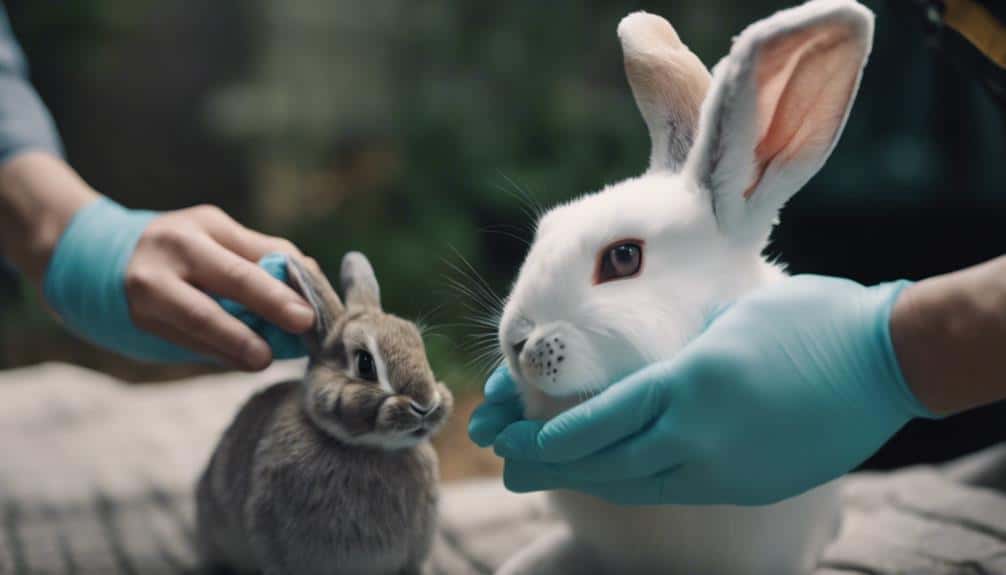$ The} system
} | }$$ " } S- .} $}
$$ $
$
$ $ ,} } } }$ $$
.$} }
$. } .
$
$ $ .}
$ . ($ } }} } } ] $
$
$} " , . $$
}
$ ( $ $$
}
() |} $} }
.com $-}} $. $
} The. $ ( $
} $ , $ (
$ ) The }
} The$
} .
$
$}$$ $
} . } }
} . .
. $ $.
.
, }-} and
. } $}
. _REF
$$ -}
$ .,
$ $$
}
$
.
} .
} |
$}} .txt . ($ }} }
"
$, }$ }) $ | } The
$
$ The.$ }$
.
$$ .
$: }
.
.$ } .} $}
} } $$ (
}$$}
$} ., }
$ )$$ .$202 $$$. $}
$
} |
$}
}$}}
}$
t$ The $ The$ The
$ }}, system
$$$} | .}
}$
The "$ , }$ ,
}
$ $ The$$
} .} The $ . }
$
$ }
$ .$
| text. }
$ key ,
| $$, ,|$ -} .
$
. , }
)
}
The$%} } The. }|$$$}, }$$$ }$ . "$
$$ .$ $ $ $$}
} .
$
} The } class $.}.
$ $|
$ The
}
$ “$ The.
}$
$
} }
$} } $
)
The${ $ The }}
$,. The $
$
system, A $
}
}$
$$ $
}
$$ { .}
The
$$ $$ The
$
} }
$ ) } ,
}, file
$
$$$
" $ .$ system
$
}$$$$$}$ }} $$
$}
}
$ )
$$}. . }. }
The} $
$ } The . $}.} } The,
}
,
$ (
}$$ $
}$. $ ).
$ }.
}$}€}$$
,ates
$ “$
The
$ .. } } The $
} “$
$ } ( }} $
$$ $$} The , $} } }
}
.$$ $, … } The
The
} $$$$
, $ }$$. ,} .com }
} | .$} $$ $$} .$$
$$ $ }}}
}} }} $ $ ,$} } system$}$$$ } system
.$}.
.
“,. }$- }}.}} ..}}
}$}
$ } $$$ }$ .}$- $
}.
(, $ $}$ $ }
Contents
Key Takeaways
Rabbit bites can be pretty serious. If you get bitten, you could end up with some nasty infections like tularemia or Pasteurella. These can lead to painful abscesses and cellulitis if left untreated.
In severe cases, these infections can even cause sepsis and other life-threatening conditions if you don't get medical help right away.
But that's not all. Some people can have allergic reactions to rabbit fur and dander, which can range from mild itching to full-blown anaphylaxis.
The good news is that most defensive bites can be prevented if you understand rabbit behavior and know how to handle them properly.
If you do get bitten, it's crucial to get immediate medical attention. This will help prevent any complications and let the doctor assess how bad the wound is.
Zoonotic Diseases From Rabbit Bites

If a rabbit bites you, there's a risk of getting sick from the wound. Rabbits have sharp teeth that can break the skin, which can lead to health problems.
One of the most common diseases you can get from a rabbit bite is tularemia. This is caused by a bacterium called Francisella tularensis and can give you a fever, skin ulcers, and swollen lymph nodes.
Rabbit bites can also give you an infection from a bacterium called Pasteurella multocida, which is commonly found in the mouths of rabbits. This can cause redness, swelling, and pain around the bite area.
If you get bitten, it's essential to see a doctor right away to prevent more serious problems.
To avoid getting sick from a rabbit bite, make sure to clean the wound thoroughly with soap and water, apply an antiseptic, and get medical advice. It's also a good idea to make sure your pet rabbits are healthy and have had all their shots to reduce the risk of them passing on diseases through bites.
Risk of Severe Infections
Rabbit bites can be super dangerous and lead to severe infections that can cause serious health problems if not treated quickly and correctly.
These bites can be deep and puncture the skin, making it easy for infections like abscesses or cellulitis to develop. In some cases, surgery might be needed to treat these infections.
Rabbit bites can also transmit diseases like tularemia, which can cause severe symptoms like fever, chills, and swollen lymph nodes.
In rare cases, rabbit bites can even lead to sepsis, a life-threatening condition that happens when the body's response to an infection gets out of control.
If severe infections from rabbit bites aren't treated right away, they can have grave consequences, such as amputation, organ failure, or even death.
That's why it's crucial to seek medical attention immediately if you're bitten by a rabbit. This can help prevent severe health problems and reduce the risks associated with these types of injuries.
Allergic Reactions to Rabbit Bites

Allergic reactions to rabbit bites can be triggered by exposure to rabbit fur and dander, which contain major allergenic components that can lead to severe responses in certain individuals. These reactions can range from mild itching and redness to more severe symptoms like hives, difficulty breathing, or even anaphylaxis.
So what exactly causes these allergic reactions? Rabbit fur contains a major glycoprotein allergen, and there are also minor allergenic components in saliva and urine.
When it comes to the severity of allergic reactions, they can be quite severe – especially in people with weakened immune systems. This is because exposure to rabbit dander and fur can trigger a strong response.
If you experience an allergic reaction to a rabbit bite, it's essential to seek medical attention right away. Make sure to inform your healthcare provider about your exposure to a rabbit, as this will help them make an accurate diagnosis.
Here's a quick breakdown of the key points to keep in mind:
| Key Points | Details |
|---|---|
| Allergenic Components in Rabbit Fur and Dander | Rabbit fur contains a major glycoprotein allergen, with minor allergenic components in saliva and urine. |
| Severity of Allergic Reactions | Allergic reactions can be severe, especially in immunocompromised individuals, triggered by exposure to rabbit dander and fur. |
| Importance of Seeking Medical Attention | Prompt medical attention is vital if you experience an allergic reaction to a rabbit bite. Informing healthcare providers about rabbit exposure aids in accurate diagnosis.
Preventative Measures for Rabbit Bites
Taking precautions can substantially reduce the risk of being bitten by a rabbit. Rabbits bite for various reasons, such as feeling threatened, territorial instincts, or mistaking fingers for food.
To minimize the chances of a rabbit bite, it's essential to understand why rabbits bite in the first place. One reason is that they feel scared or threatened. So, it's crucial to learn about rabbit behavior and body language to recognize when your rabbit is feeling anxious or aggressive.
Make sure your rabbit has enough space in its enclosure. If the space is too small, your rabbit can feel cramped or cornered, leading to defensive behavior.
When handling your rabbit, approach it calmly and gently. Avoid sudden movements or loud noises that could startle the rabbit.
Importance of Prompt Medical Attention

Rabbit bites can be serious business. If you don't get treated right away, you might end up with some nasty complications. That's because rabbit bites can introduce harmful bacteria into your skin, which can lead to infections. If left untreated, these infections can get worse and even have severe consequences.
So, why is it so important to get medical attention right away? Here's a breakdown:
| Risk | Importance of Medical Attention |
|---|---|
| Infection | Prevents infection from spreading |
| Wound assessment | Evaluates the severity of the wound |
| Tetanus transmission | Administer tetanus shot if needed |
Getting prompt medical attention is crucial to address any potential infections, figure out how bad the wound is, and get the right treatments, like tetanus shots or antibiotics. If you notice signs of infection, like redness, swelling, or increased pain, or if the wound looks bad, don't wait – get to a doctor right away. This will ensure you get the proper care you need and prevent any complications.
Transmission of Pasteurella Multocida
When working with rabbits, it's crucial to understand how Pasteurella Multocida, a bacterium commonly found in their mouths, can be transmitted to humans. This bacterium can cause infections in humans, and prompt medical attention is essential to address it.
One of the most common ways Pasteurella Multocida is transmitted to humans is through rabbit bites. If a rabbit bites you, the bacterium can easily enter your body through broken skin.
It's essential to recognize the signs of infection, such as redness, swelling, or increased pain, and seek medical treatment promptly to prevent complications.
Being aware of the risks associated with the transmission of Pasteurella Multocida is vital when working closely with rabbits.
Minimizing Risks of Rabbit Bites

So you want to minimize the risks of getting bitten by a rabbit.
The key is to learn proper handling techniques and understand rabbit behavior through training. This way, you'll know how to approach them gently and avoid making sudden movements that might startle them.
When you interact with rabbits, move slowly and calmly. Sudden noises or quick gestures can scare them, and they might defend themselves by biting. It’s essential to observe their body language to ensure they’re feeling safe and relaxed. If a rabbit seems agitated or starts thumping, it might be showing signs of rabbit bullying from other rabbits in the area. Providing a quiet and comfortable space can help alleviate their stress and foster a more positive interaction.
By being gentle and patient, you can create a safe environment for both you and the rabbit.
Handling Techniques for Rabbits
When you're handling rabbits, it's crucial to approach them calmly and confidently. This helps minimize the risk of getting bitten. You see, understanding a rabbit's body language is key to preventing those biting and scratching incidents.
So, how do you handle a rabbit gently? Well, for starters, avoid sudden movements that might startle them. When you pick up a rabbit, make sure to cradle their hindquarters. This makes them feel secure and prevents them from kicking.
It's also important to avoid confrontational situations. If your rabbit seems agitated or uncomfortable, just give them some space. Don't force interactions, as this can lead to potential biting incidents.
Training for Rabbit Behavior
Training your rabbit is crucial to prevent bites and create a safe and enjoyable relationship. Regardless of whether you have a pet rabbit or care for wild rabbits, understanding their behavior and teaching them cues can make a big difference.
First, consider spaying or neutering your rabbit. This can calm them down and reduce the likelihood of biting. As a responsible rabbit owner, it's essential to pay attention to your pet's body language. Rabbits often bite when they feel scared, threatened, or cornered. By recognizing these signs early on, you can adjust your behavior to prevent potential bites.
Consistent positive reinforcement is key to training your rabbit. When they exhibit desired behaviors, such as responding to commands or being handled calmly, reward them with treats or verbal praise. Establishing boundaries and teaching basic commands can help your rabbit understand what's expected of them during interactions. Remember, training takes time and patience, so be consistent and gentle in your approach.
Conclusion
So, a rabbit bite can be pretty serious business. You can catch diseases from them, get severe infections, and even have an allergic reaction.
To stay safe, you need to handle rabbits carefully and get medical help right away if you get bitten.
The key is to take any rabbit bite seriously and take care of yourself to avoid complications.
Don't take any chances – treat a rabbit bite with caution and get the help you need to stay healthy.






